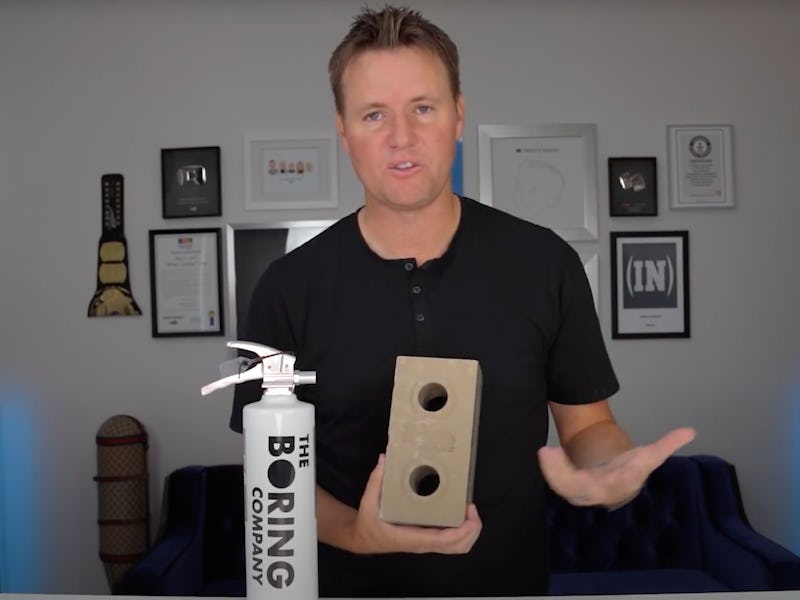The Boring Company: Watch rare limited-run brick take on the competition
Elon Musk's tunnel-digging firm has produced a limited run of 500 bricks — and one of them has been put through its paces.

The Boring Company's most elusive product has been put through its paces in a new video.
The tunnel-digging venture, started by Elon Musk at the end of 2016 with a view to alleviating road traffic, has planned since its early stages to take the dug-out dirt from tunnels and use it to make bricks. The idea is to sell the bricks for 10 cents each, or give them away for free when used for affordable housing projects. But while the company has shipped out hats and flamethrowers to eager fans, and construction has started on the company's first public tunnel, the bricks remain elusive.
But on Friday last week, YouTube channel "What's Inside" shed a little light on these mysterious bricks. Speaking with company employees, host Dan Markham explained that the company has produced 500 iterations of the brick.
The way it works is this: The company takes the wet dirt from the tunnel, shapes it into a brick, leaves it out for a few days, and flips it around repeatedly "like a patty." The brick is then compressed and embossed with a logo.
The company didn't produce more than 500 because Musk is reportedly unhappy with how The Boring Company's logo looks on the bricks. The prototype bricks were instead given away to employees that worked on the company's first demo tunnel, built near the SpaceX headquarters in Hawthorne, California.
Markham bought two bricks from some of these employees for $200 each — a total of $400. That's a far cry from the 10 cents they're supposed to cost. Markham gave one away to a friend and kept one for himself.
He then proceeded to put the brick through its paces with a series of drop tests:
In Markham's tests, the Boring Company's brick faced off against four bricks bought from Lowe's: a 53-cent Segundo red clay brick, a 58-cent used Segundo brick, a 71-cent cinder block with metal inside, and a 43-cent grey cinder block.
The results speak for themselves. The used brick and cinder block both broke when dropped from shoulder height, while the red clay brick broke when dropped from the top of a flight of stairs.
The Boring Company brick, however, only broke when thrown into the air from the top of the stairs.
Beyond these beta tests, The Boring Company's bricks have made few public appearances. In July 2018, the bricks were used to build a podium for Musk at SpaceX's hyperloop competition. The Boring Company also built a watchtower from them near the Hawthorne tunnel, a nod to one of Musk's favorite film series Monty Python.
But soon more could be in circulation. The Boring Company is building its first public tunnel at the Las Vegas Convention Center. The project, which consists of over 4,500 feet of bi-directional tunnels, is expected to be finished soon. In September 2020, Musk claimed the tunnel is "almost done."
The Inverse analysis – The bricks seem to offer impressive durability, and the firm may have a winning product if they can sell them for 10 cents each. Reusing tunnel dirt for bricks is not a new idea — dirt from New York's Second Avenue Subway was partly used to build a golf course in the Bronx — but selling the bricks could make it easier for new projects to take advantage of the used dirt, particularly if Musk follows through on his pledge to give them away for affordable housing projects.
The big question remains when the bricks will go on sale — if the initial set is anything to go by, it's entirely possible the bricks haven't met Musk's expectations yet. Or as Markham notes, perhaps the firm found it is not actually worth their while to sell the bricks as cheap as they'd hoped.